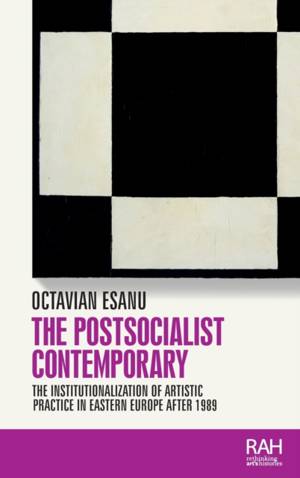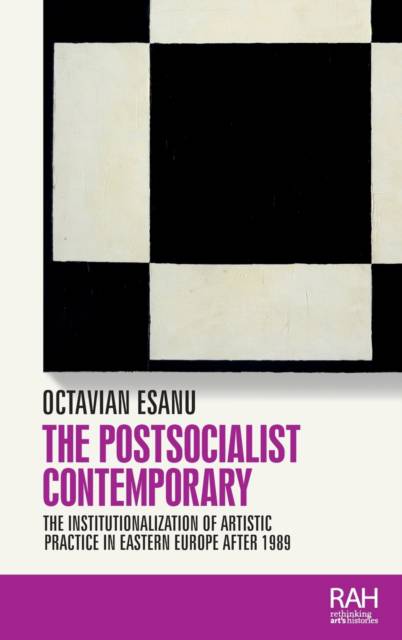
- Afhalen na 1 uur in een winkel met voorraad
- Gratis thuislevering in België vanaf € 30
- Ruim aanbod met 7 miljoen producten
- Afhalen na 1 uur in een winkel met voorraad
- Gratis thuislevering in België vanaf € 30
- Ruim aanbod met 7 miljoen producten
Zoeken
The Postsocialist Contemporary
The Institutionalization of Artistic Practice in Eastern Europe After 1989
Octavian Esanu
€ 193,45
+ 386 punten
Omschrijving
The postsocialist contemporary joins a growing body of scholarship debating the definition and nature of contemporary art. It comes to these debates from a historicist perspective, taking as its point of departure one particular art programme, initiated in Eastern Europe by the Hungarian-American billionaire George Soros. First implemented in Hungary, the Soros Center for Contemporary Art (SCCA) expanded to another eighteen ex-socialist countries throughout the 1990s. Its mission was to build a western 'open society' by means of art. This book discusses how network managers and artists participated in the construction of this new social order by studying the programme's rise, evolution, impact and broader ideological and political consequences. Rather than recounting a history, its engages critically with 'contemporary art' as the aesthetic paradigm of late-capitalist market democracy.
Specificaties
Betrokkenen
- Auteur(s):
- Uitgeverij:
Inhoud
- Aantal bladzijden:
- 288
- Taal:
- Engels
- Reeks:
Eigenschappen
- Productcode (EAN):
- 9781526158000
- Verschijningsdatum:
- 23/11/2021
- Uitvoering:
- Hardcover
- Formaat:
- Genaaid
- Afmetingen:
- 156 mm x 234 mm
- Gewicht:
- 576 g

Alleen bij Standaard Boekhandel
+ 386 punten op je klantenkaart van Standaard Boekhandel
Beoordelingen
We publiceren alleen reviews die voldoen aan de voorwaarden voor reviews. Bekijk onze voorwaarden voor reviews.








